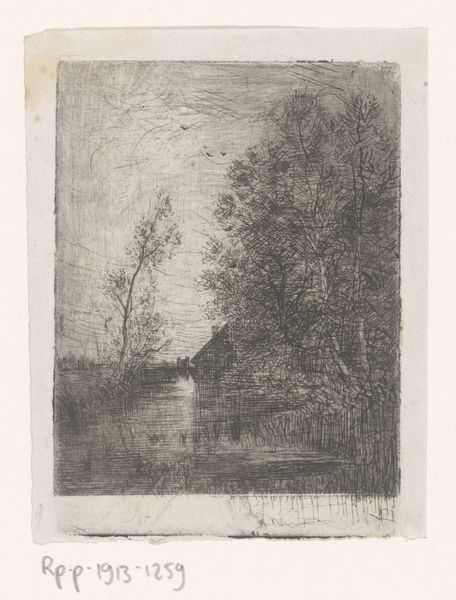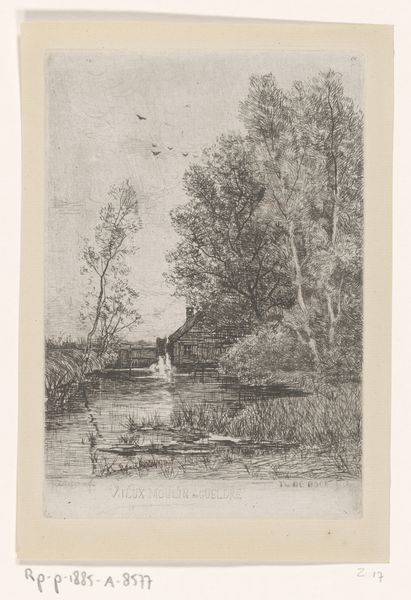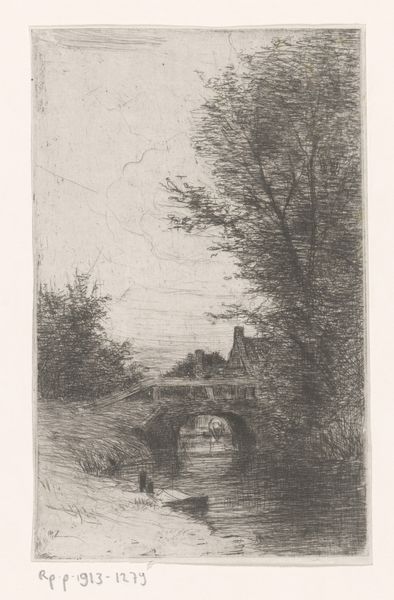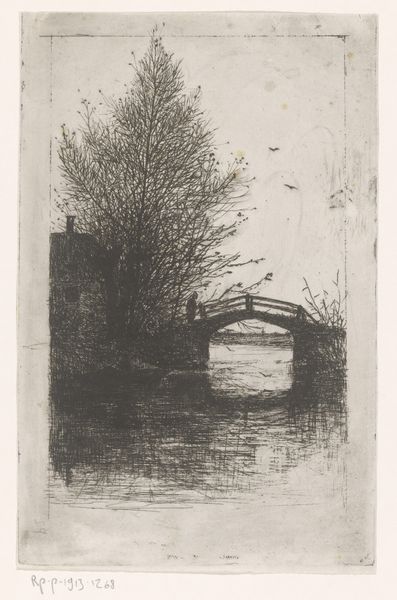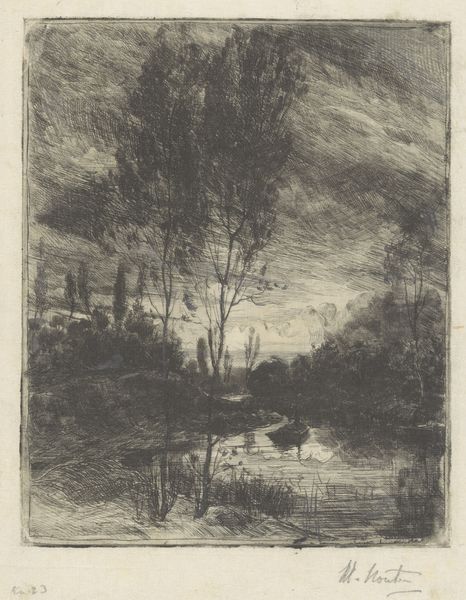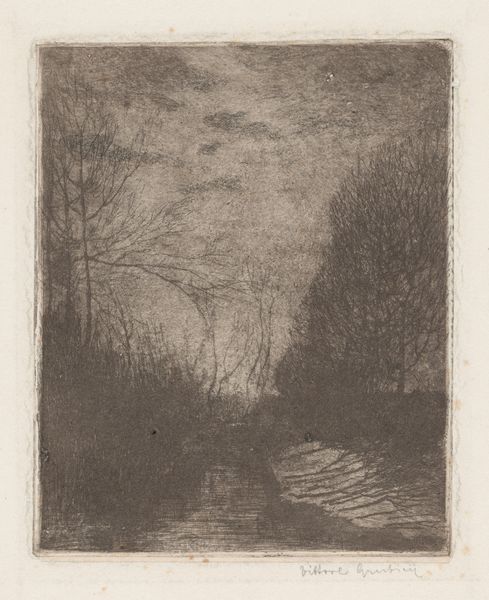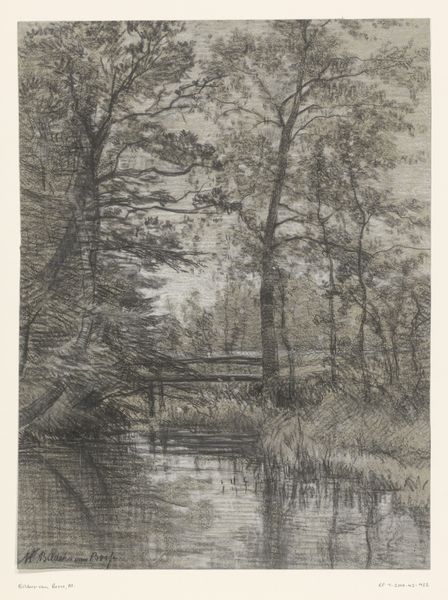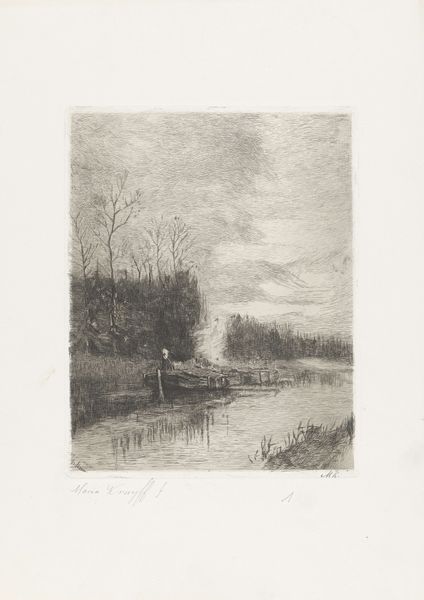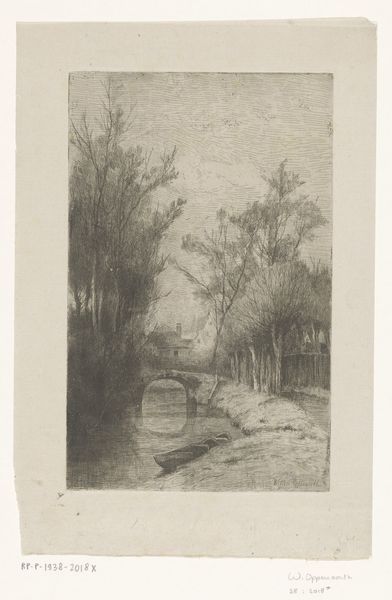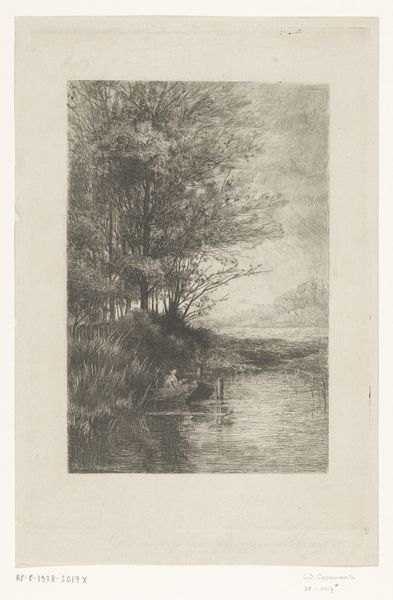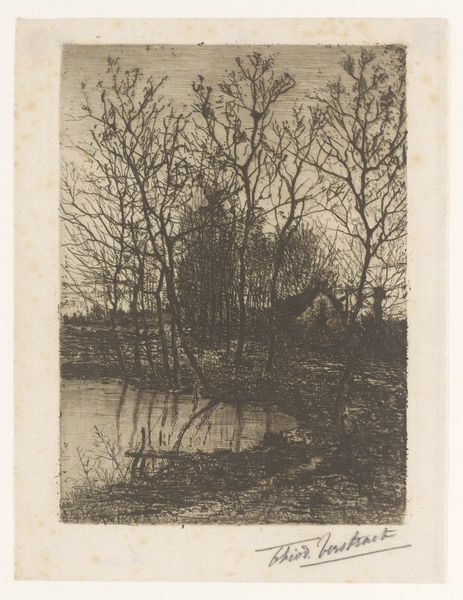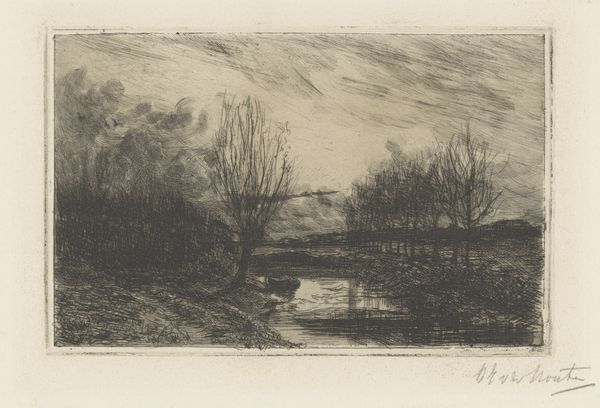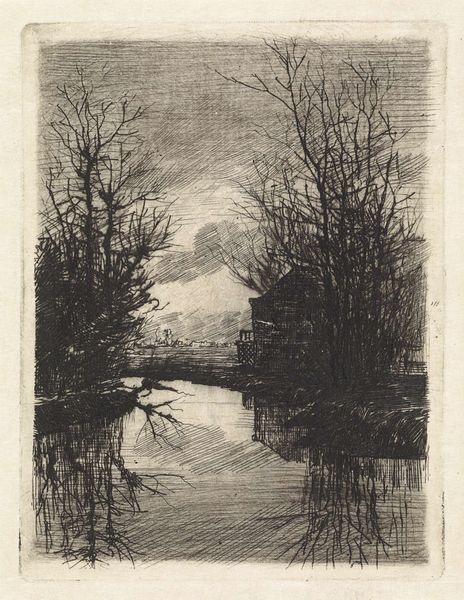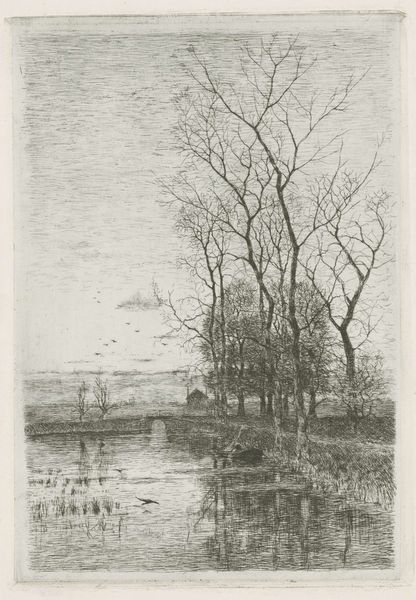
print, etching, paper
# print
#
impressionism
#
etching
#
landscape
#
paper
#
line
#
cityscape
#
watercolor
Dimensions: height 204 mm, width 127 mm
Copyright: Rijks Museum: Open Domain
Curator: Looking at "Bridge over a Creek," created sometime between 1867 and 1890 by Philip Zilcken, presently held at the Rijksmuseum. An etching, printed on paper, with what looks to me like very deliberate line work. Editor: My immediate impression is one of melancholy, of quiet contemplation on a gray day. It's all subdued tones and a kind of blurred focus. Almost feels like a memory fading. Curator: Absolutely. Consider the etcher's painstaking labor involved, the way acid interacts with the metal plate... then repeated printing to yield numerous images. Did this accessibility change perceptions and democratize landscape art, or simply flood the market? Editor: Ah, see, I didn't think about the labor in the printmaking; I was busy dreaming of walking across that bridge, wondering where it led. To me, the slight imprecision is what makes it so captivating. Curator: Well, what appears ‘imprecise’ also likely stemmed from material conditions: tools available to Zilcken and the very consistency of the paper he utilized impact his freedom and dexterity when translating landscape. These factors helped solidify aesthetic of “Impressionist Printmaking”, blurring clear distinctions we often uphold between artisanal skill and fine art vision. Editor: True, and you know, thinking of that connection between "artisanal skill and vision" made me focus again on that line work...The density varies so much—thin and scratchy in the sky, thicker and more definite around the bridge and the trees. He directs your gaze, you know? The lines are, well, little roads for your eyes. Curator: Exactly! He compels us to study his intentional composition—his means dictate our viewing experience! We begin appreciating labor behind representation of fleeting moment captured using the era's developing industrial capabilities! Editor: It's interesting how you connect the industrial with something that feels so intensely personal, you know? Because for me, looking at this, I just feel a deep longing for a slower pace, a simpler life. I would love to be on the edge of that bridge. Curator: Right, I agree with that... Perhaps Zilcken longed similarly: by showcasing and capturing nature that feels lost to modern living in mass-produced format we still manage retain access ephemeral human experience even now after a hundred and fifty odd years.
Comments
No comments
Be the first to comment and join the conversation on the ultimate creative platform.
